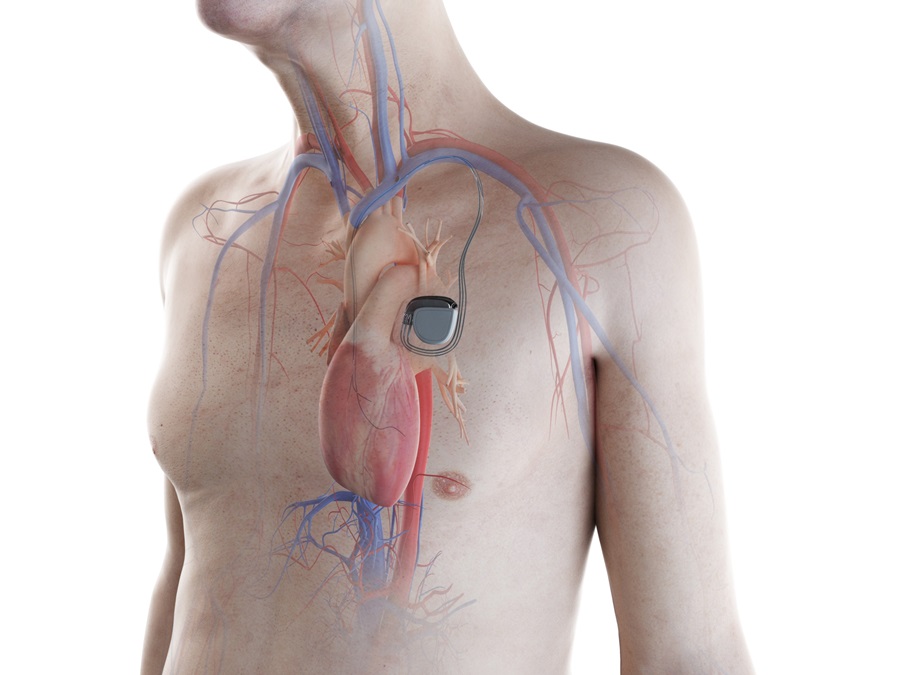Novel Hydrogel Could Provide Alternative to Pacemakers
|
By HospiMedica International staff writers Posted on 01 Jul 2024 |

A heart attack not only poses immediate life-threatening risks but also leads to severe long-term health issues: 50 to 60% of survivors face sudden cardiac death due to arrhythmias. Currently, the most effective method to manage cardiac arrhythmias and avert sudden cardiac death is through the implantation of pacemakers. However, pacemakers do not prevent recurring arrhythmias. Researchers have now invented a novel gel to address this limitation of pacemakers and published their full study online in Advanced Materials.
This new gel, created by researchers at Friedrich-Alexander-Universität Erlangen-Nürnberg (FAU, Erlangen, Germany) and the University of Bonn (Bonn, Germany), combines collagen, an effective and well-tolerated carrier substance, and PEDOT:PSS, an electrically conductive agent, to potentially prevent cardiac arrhythmias. Scar tissue formed post-heart attack disrupts electrical signals, which prevents the cardiac muscle cells from communicating properly with each other and beating in rhythm. While pacemakers, or implantable cardioverter defibrillators (ICDs), can detect and correct arrhythmias by delivering shocks, they do not address the arrhythmias' root cause and can damage the heart due to the frequent shocks, causing significant distress and diminishing the patient's quality of life.
The innovative gel can be directly injected into the heart's scar tissue to restore electrical conductivity, enhancing communication among cardiac cells. Early trials in animal models show the gel effectively prevents arrhythmias and ventricular tachycardia, potentially eliminating the need for the harsh shocks from ICDs. Nonetheless, extensive research is needed before it becomes available for human use. Challenges include the complexity of human cardiac scars compared to those in animal models and unknown potential reactions from the human immune system to the hydrogel. Once these issues are resolved, the collagen PEDOT:PSS hydrogel may initially be tested in high-risk patients who are particularly impacted by the adverse effects of ICD shocks.
Related Links:
FAU
University of Bonn
Latest Critical Care News
- Novel Cannula Delivery System Enables Targeted Delivery of Imaging Agents and Drugs
- Ingestible Smart Capsule for Chemical Sensing in the Gut Moves Closer to Market
- Novel Intrabronchial Method Delivers Cell Therapies in Critically Ill Patients on External Lung Support
- Generative AI Technology Detects Heart Disease Earlier Than Conventional Methods
- Wearable Technology Predicts Cardiovascular Risk by Continuously Monitoring Heart Rate Recovery
- Wearable Health Monitoring Device Measures Gases Emitted from and Absorbed by Skin
- Groundbreaking Technology Rapidly Detects Airborne Influenza Viruses
- Handheld Device Could Transform Heart Disease Screening
- Flexible Semi-Autonomous Robot Could Deliver Medicine Inside Body

- Neurorestorative Treatment Strategies Hold Promise for Most Severe Forms of Epilepsy
- Gene Discovery Could Help Grow New Heart Arteries
- Study Discovers Invisible Transmission of Common Hospital-Associated Infection
- Non-Invasive Neuro-Ophthalmology Techniques Could Detect Brain Tumors Earlier
- Mass Manufactured Nanoparticles to Deliver Cancer Drugs Directly to Tumors
- World’s Smallest Pacemaker Fits Inside Syringe Tip

- AI-Powered, Internet-Connected Medical Devices to Revolutionize Healthcare, Finds Study
Channels
Surgical Techniques
view channel
Pioneering Sutureless Coronary Bypass Technology to Eliminate Open-Chest Procedures
In patients with coronary artery disease, certain blood vessels may be narrowed or blocked, requiring a stent or a bypass (also known as diversion) to restore blood flow to the heart. Bypass surgeries... Read more
Intravascular Imaging for Guiding Stent Implantation Ensures Safer Stenting Procedures
Patients diagnosed with coronary artery disease, which is caused by plaque accumulation within the arteries leading to chest pain, shortness of breath, and potential heart attacks, frequently undergo percutaneous... Read more
World's First AI Surgical Guidance Platform Allows Surgeons to Measure Success in Real-Time
Surgeons have always faced challenges in measuring their progress toward surgical goals during procedures. Traditionally, obtaining measurements required stepping out of the sterile environment to perform... Read morePatient Care
view channel
Portable Biosensor Platform to Reduce Hospital-Acquired Infections
Approximately 4 million patients in the European Union acquire healthcare-associated infections (HAIs) or nosocomial infections each year, with around 37,000 deaths directly resulting from these infections,... Read moreFirst-Of-Its-Kind Portable Germicidal Light Technology Disinfects High-Touch Clinical Surfaces in Seconds
Reducing healthcare-acquired infections (HAIs) remains a pressing issue within global healthcare systems. In the United States alone, 1.7 million patients contract HAIs annually, leading to approximately... Read more
Surgical Capacity Optimization Solution Helps Hospitals Boost OR Utilization
An innovative solution has the capability to transform surgical capacity utilization by targeting the root cause of surgical block time inefficiencies. Fujitsu Limited’s (Tokyo, Japan) Surgical Capacity... Read more
Game-Changing Innovation in Surgical Instrument Sterilization Significantly Improves OR Throughput
A groundbreaking innovation enables hospitals to significantly improve instrument processing time and throughput in operating rooms (ORs) and sterile processing departments. Turbett Surgical, Inc.... Read moreHealth IT
view channel
Printable Molecule-Selective Nanoparticles Enable Mass Production of Wearable Biosensors
The future of medicine is likely to focus on the personalization of healthcare—understanding exactly what an individual requires and delivering the appropriate combination of nutrients, metabolites, and... Read more
Smartwatches Could Detect Congestive Heart Failure
Diagnosing congestive heart failure (CHF) typically requires expensive and time-consuming imaging techniques like echocardiography, also known as cardiac ultrasound. Previously, detecting CHF by analyzing... Read moreBusiness
view channel
Expanded Collaboration to Transform OR Technology Through AI and Automation
The expansion of an existing collaboration between three leading companies aims to develop artificial intelligence (AI)-driven solutions for smart operating rooms with sophisticated monitoring and automation.... Read more
















